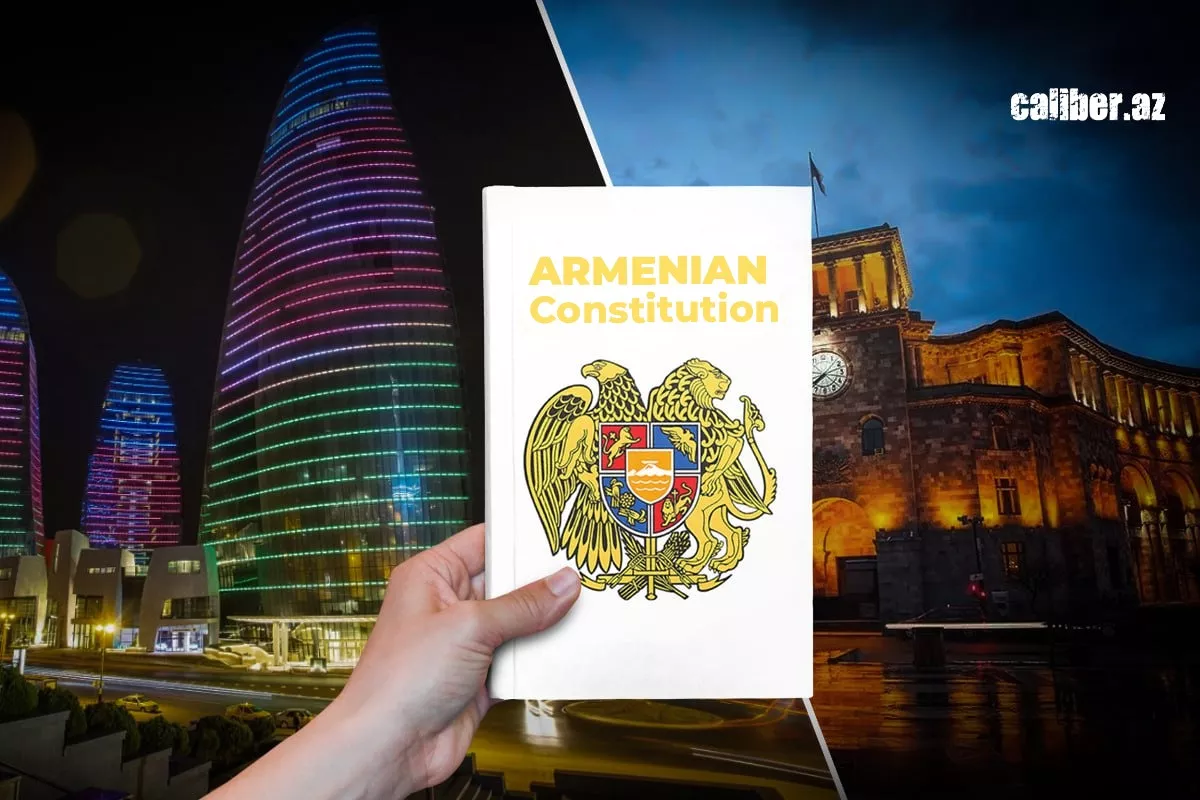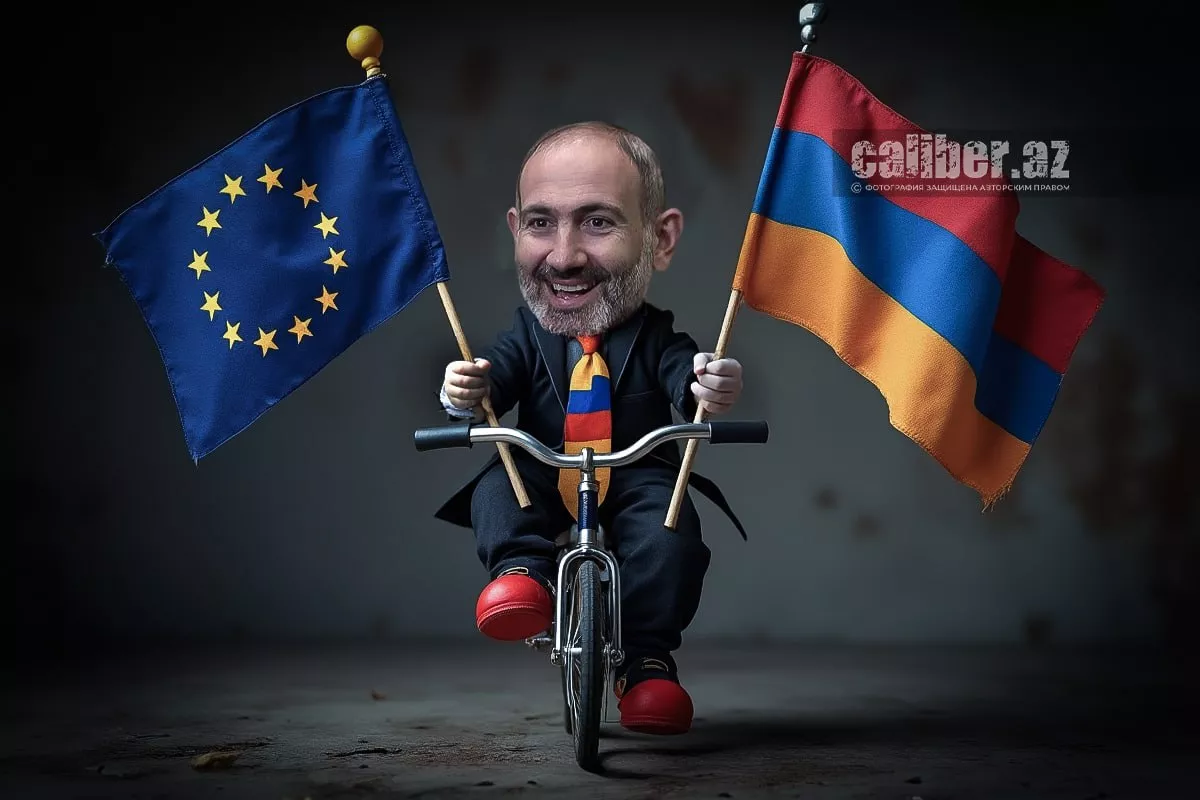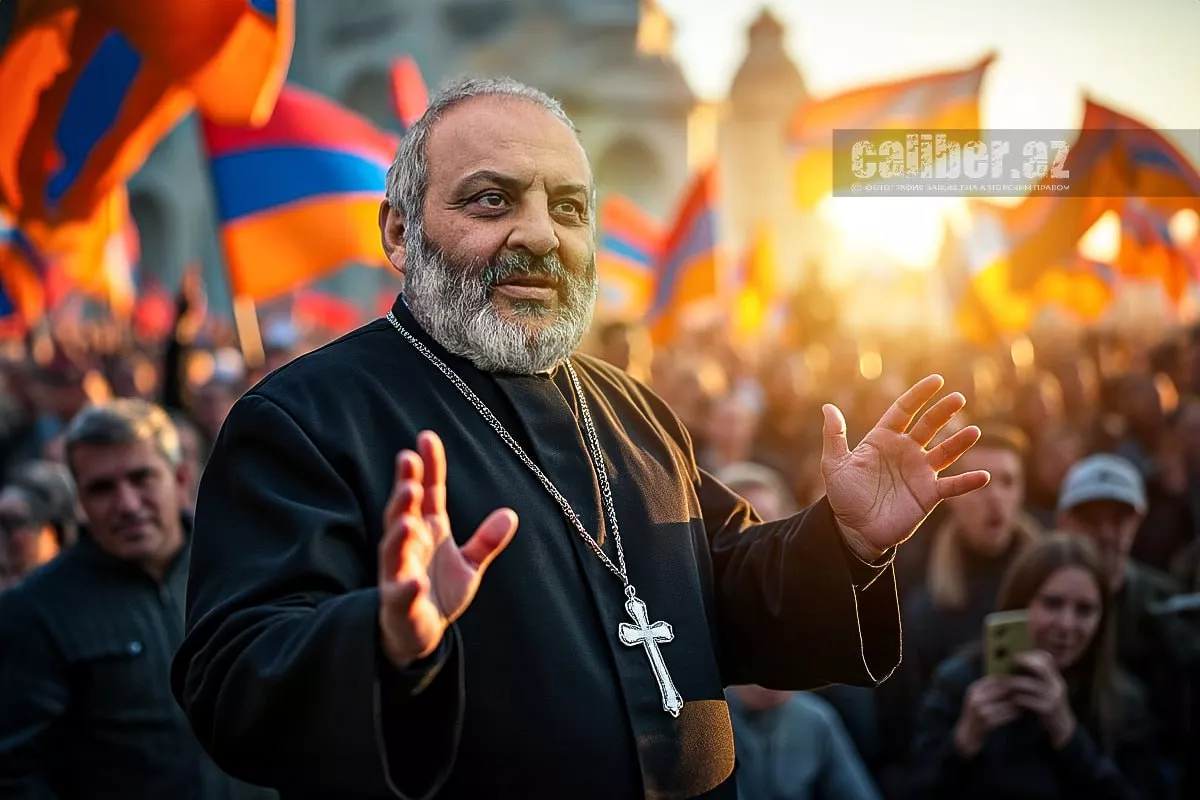Armenia – 2024: Discord and turmoil Unresolved peace talks with Azerbaijan
Throughout 2024, Armenia continues to be plagued by political challenges. Once renowned revolutionaries referred to such situations in various countries as manifestations of "discord and turmoil," implying a lack of clarity, precision, and coherence in shaping a nation’s political course. This perspective is vividly evident when applied to Armenia.
For instance, Armenia's Foreign Minister Ararat Mirzoyan, citing agreement on 15 out of 17 articles of the peace treaty with Azerbaijan, announced readiness to finalize the process as soon as possible. As he emphasized, "we are very close" to this. However, Mirzoyan did not specify the exact details that prevent the signing of the agreement in full. It is evident, though, that the delay stems directly from Yerevan, which has not even attempted to amend its constitution—a document that enshrines aggressive ambitions against Azerbaijan.
As noted by Azerbaijani Deputy Foreign Minister Elnur Mammadov on December 10, "two main obstacles to achieving a sustainable peace between Yerevan and Baku" remain: the constitutional provision reflecting Armenia's aggressive intentions towards Azerbaijan (1), rooted in the "Declaration of Independence" of the neighboring republic, which includes a clause asserting "the attribution" of Karabakh to Armenia (2).

Simultaneously, Armenia's Foreign Minister subtly commented on Yerevan's international preferences. Specifically, Mirzoyan stated that the "indifference" of the CSTO toward Yerevan regarding real support in protecting the sovereignty and territorial integrity of the country has led to “enormous frustration." Undoubtedly, Mirzoyan's stance aligns with a recent statement by Armenian Prime Minister Nikol Pashinyan, who asserted that Yerevan, "considering itself outside the CSTO, does not participate in the adoption of decisions and documents within the organization.”
As Mirzoyan's remarks suggest, this issue has driven Yerevan to deepen its ties with the EU, exemplified by work on a document titled the "New Partnership Agenda," which aims to cover various areas of cooperation. Another outcome of the mutual understanding between Brussels and Yerevan, according to Mirzoyan, is the presence of an EU mission in Armenia. However, he refrained from mentioning that this mission is not only equipped with an excessive number of binoculars but also staffed with intelligence personnel from a "composite team" monitoring the border with Azerbaijan.
A significant testament to the "dual aspiration for mutual engagement" between Brussels and Yerevan came on December 10, when Armenia's Central Electoral Commission confirmed the validity of 52,351 signatures collected to submit a law to parliament initiating the republic's accession process to the EU. According to Armenia's constitutional law "On Referendums," at least 50,000 valid signatures are required for an initiative group to submit legislation to parliament, such as the proposed law "On Starting the Process of Armenia's Accession to the European Union."

At the same time, alongside this foreign policy trajectory, other directions in Armenia's international alignment are also being discussed. For instance, a day before the CEC announcement, Yerevan hosted a roundtable titled "Shaping Eurasian Security: A View from Armenia." During the event, the chairman of the "For Social Justice" party, Arman Ghukasyan, highlighted the need for "regional coordination to preserve the sovereignty and stability of Eurasian countries" amid "increased pressure from NATO, led by the United States, and active interference by the UK and the European Union."
According to Ghukasyan, Russia’s leading role is evident, given its "enormous military, diplomatic, and economic potential." Furthermore, he suggested that this framework of "multi-level interaction" could include not only CSTO and EAEU members but also Iran, China, and India, enabling the development of a "common approach." As Ghukasyan put it, "participation in a new security system" would provide "additional protection for Armenia in the face of a complex geopolitical situation characterized by threats from Türkiye and Azerbaijan."
Unsurprisingly, Ghukasyan's statements carried a distinctly anti-Turkish and anti-Azerbaijani tone. He argued that particular attention within the proposed new structure—perceived by some analysts as a precursor to a "bloc configuration"—should focus on "military cooperation, including the establishment of infrastructure for rapid crisis response," among other measures. This, according to Ghukasyan, would allow Armenia to "ensure its security."
The anti-Turkish sentiment is also evident among other Armenian political analysts, often framed within attempts to create friction between Ankara and Moscow. For example, Grant Melik-Shahnazaryan characterized Türkiye’s "consistent policy" as an "aspiration to restore its influence over the territories of the former Ottoman Empire," which he views as a threat to Armenia. In light of this, Melik-Shahnazaryan argued that Yerevan "cannot pursue a path of exiting the CSTO, hoping Türkiye will not exploit such a move."
Another Armenian expert, Sergey Melkonyan, identified "Turkish ambitions concerning the corridor through Syunik (Zangezur)" as "the greatest threat" to Armenia.
The polarization within Armenian society regarding support for or opposition to Yerevan's alignment with various foreign policy directions is evident. In this context, external actors are striving to influence the balance in ways that suit their interests. For instance, the U.S. State Department’s Bureau of International Narcotics and Law Enforcement Affairs hailed Armenia's Minister of Justice, Srbuhi Galyan, as "one of Department of State's 2024 Anti-Corruption Champions."
Meanwhile, during a meeting between members of the "Civil Contract" faction and a U.S. Congressional delegation led by the Chair of the House Democracy Partnership, the importance of Washington’s support for the process of democratic reforms in Armenia was emphasized.

Incidentally, surfacing once again on Armenia's political scene is Father Bagrat Galstanyan. Declaring that he "aspires to nothing" (in relation to the post of prime minister), Galstanyan described himself as "a means, a tool, and an opportunity for change."
And what about Nikol Pashinyan? Well, not much has changed here either, except for the Armenian prime minister’s expressed delight over the growing number of views on his Facebook page: "I think I've never had such viewership, not even during the revolution."
Thus, everything in Armenia remains as it was. While the form may shift, the essence stays the same. Against this backdrop, the country’s politicians seem to make little effort to transition Armenia from an object of external influences to a subject with its own agency. Or perhaps they see no need for such a transformation?








